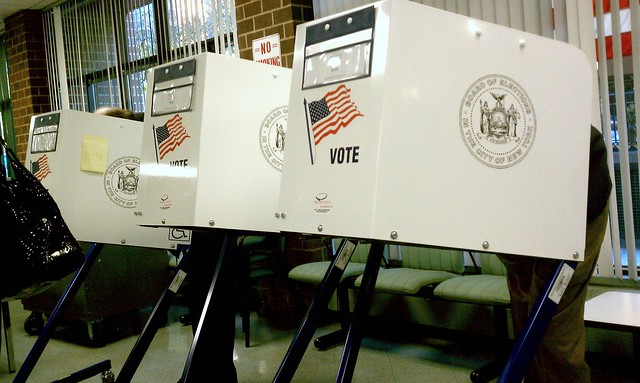 SECURITY
SECURITY
 SECURITY
SECURITY
 SECURITY
SECURITY
Election systems in 50 states were targeted by Russian government-backed hackers, according to a report released Thursday by the U.S. Senate Intelligence Committee.
The report, which was heavily redacted, states that interference began as early as 2014 and went on until 2017, although it adds that there is no proof that votes were changed or voting machines were manipulated.
Previously a number of states had been warned about Russian interference. Nonetheless, the report said, those warnings issued by the Federal Bureau of Investigation and the Department of Homeland Security didn’t contain enough information that would have impelled states to take the threat more seriously.
“While the Committee does not know with confidence what Moscow’s intentions were, Russia may have been probing vulnerabilities in voting systems to exploit later,” the report said in one of the key findings. “Alternatively, Moscow may have sought to undermine confidence in the 2016 U.S. elections simply through the discovery of their activity.”
Going forward, said the report, security has to be tightened. For example, the committee wrote that voter registration databases were not as secure as they could have been, while voting machines were vulnerable to exploitation by hackers. “Despite the focus on this issue since 2016, some of these vulnerabilities remain,” it added.
Since so much of the report is blacked out it’s not clear just how Russia every state was hacked. It does say, though, that if hackers had wanted to, they could have messed with the 2016 election in a big way. “Russian cyber actors were in a position to delete or change voter data,” said the report.
“In 2016, the U.S. was unprepared at all levels of government for a concerted attack from a determined foreign adversary on our election infrastructure,” Committee Chairman Richard Burr said in a statement. “Since then, we have learned much more about the nature of Russia’s cyber activities and better understand the real and urgent threat they pose.”
He added that the Department of Homeland Security and state and local elections officials have now “dramatically changed how they approach election security.”
However, the Republican-controlled Senate has declined to move forward with proposed legislation to strengthen election security. Senate Majority Leader Mitch McConnell (R-Kentucky) on Thursday blocked two election security measures. Just a day before, former special counsel Robert Mueller warned about the likelihood of election interference, saying Russia is preparing to do so “as we sit here.”
Some security experts think electoral systems need to be treated as a protected national asset akin to missile control systems or national secrets.
“My feeling is that the election infrastructure and voting booths exposing vulnerabilities should be unplugged from the internet altogether,” Sherban Naum, senior vice president for corporate strategy and technology at malware protection firm Bromium Inc., wrote in an email to SiliconANGLE. “Each state must create a pristine new election-only infrastructure. Election officials can then securely manage and maintain the integrity and privacy of the electoral process just like the DOD does with classified systems.”
Support our mission to keep content open and free by engaging with theCUBE community. Join theCUBE’s Alumni Trust Network, where technology leaders connect, share intelligence and create opportunities.
Founded by tech visionaries John Furrier and Dave Vellante, SiliconANGLE Media has built a dynamic ecosystem of industry-leading digital media brands that reach 15+ million elite tech professionals. Our new proprietary theCUBE AI Video Cloud is breaking ground in audience interaction, leveraging theCUBEai.com neural network to help technology companies make data-driven decisions and stay at the forefront of industry conversations.